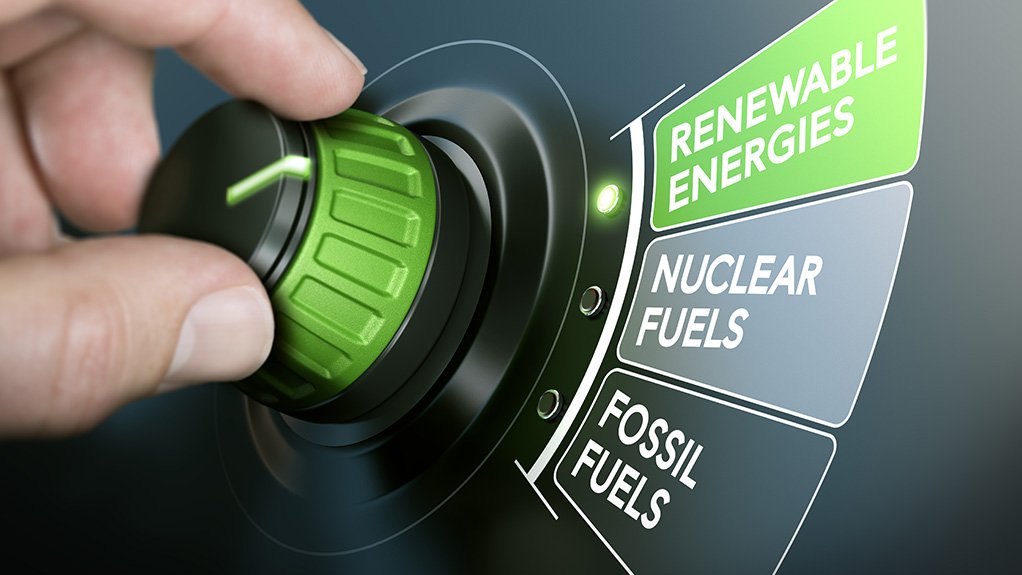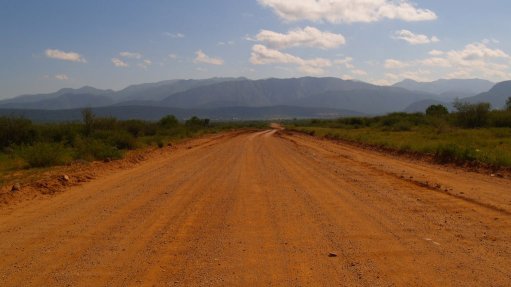Challenging transition lies ahead



PAUL O’FLAHERTY Local companies have already done a lot – at times probably more than their European or American counterparts that have not had to deal with scarcity or the same social context
TRICKY TRANSITION While much work lies ahead, there is also tremendous opportunity to build a new energy sector through South Africa’s just energy transition with the promise of new technology, new skills and much-needed jobs
South Africa’s just energy transition (JET) to a low-carbon economy will not transpire overnight and will remain a challenge throughout the 2023 financial year, professional services firm EY strategy consulting arm EY-Parthenon Africa leader Paul O’Flaherty tells Engineering News.
“As with many parts of the globe, South Africa is living in the context of a trilemma. We need to balance money (availability of funding, high interest rates and inflation), energy (availability, affordability and achieving net zero) and supply (cost, sustainability and resilience).”
The country’s JET is hindered by practical challenges, such as skills shortages, social unrest owing to growing inequality, rolling blackouts and rising inflation, that companies face daily.
“However, local companies have already done a lot – at times probably more than their European or American counterparts that have not had to deal with scarcity or the same social context. South African companies should leverage this and articulate it clearly to stakeholders and investors while acknowledging that more can be done. Expectations from stakeholders are only going to increase as greater emphasis is placed on environmental, social and governance factors,” elaborates O’Flaherty.
However, it is still critical that business works closely with South Africa’s Presidential Climate Commission (PCC), which is defining, monitoring and implementing the JET, to drive the transition, he emphasises, highlighting that he was informed by the commission’s executive director Dr Crispian Olver earlier this year that the commission is working rapidly to establish a framework that will include policy instruments to ensure the country’s transition is procedurally and substantively just.
The transformation is under way in the country’s heavy-emitting sectors, such as mining and energy, with large carbon-emitters committing to net-zero targets.
“They are actively adapting their operations through better processes, electrification and converting to renewables, including hydrogen. In most cases, the target date is 2050, but mining major Anglo American, for example, is targeting net-zero emissions across its freight shipping by 2040,” states O’Flaherty.
Over the next 15 years, State-owned power utility Eskom expects to decommission and repurpose 22 GW of coal-fired power plants, in Mpumalanga, as well as repurpose coal mining infrastructure.
It is perceived that it will be better for the country if underperforming coal-fired power stations are disconnected from the grid sooner rather than later so that the capital saved can be diverted to increasing South Africa’s renewable power supply using solar and wind farms, says O’Flaherty.
It is the goal to get every business to transition and support local renewables and green businesses, entrepreneurs and communities to offset emissions, and build up the energy sector faster, he adds.
“Grants and incentives for business are important to improve commitment from local companies. “Governments worldwide are using sustainability tax measures to reduce emissions, meet their commitments on carbon neutrality and tackle climate change, as well as raise revenue and fund important policy objectives. “While these goals are shared, the policies established to achieve them vary greatly.
“There’s no doubt that much work and discomfort lie ahead. But there is also tremendous opportunity to build a new sector with the promise of new technology, new skills and much-needed jobs,” advances O’Flaherty.
Investing in Change
The JET Investment Plan (JET-IP) – published in November 2022 – for the initial period from 2023 to 2027, focuses on the electricity, electric vehicle and green hydrogen sectors, as well as skills development and municipal capacity.
The $8.5-billion commitment from the International Partnership Group is only a steppingstone towards realising South Africa’s JET-IP, O’Flaherty says, highlighting that an estimated $100-billion is required to achieve the objectives outlined in the JET-IP.
“Like with all plans, execution and a favourable policy environment will be key.”
Further, South Africa is home to the abundance of minerals, such as platinum, needed to power vehicles of the future.
“This presents the opportunity to carve a new and expanded role for the country in the automotive value chain. “But retaining and expanding the existing production capacity will require new fiscal outlays from government, which has an eroded balance sheet and poor short-term growth prospects,” explains O’Flaherty.
While South Africa has yet to finalise its strategy for new energy vehicles (NEVs), the country’s strategy is not expected to be as generous as those of developed countries, where citizens are encouraged to buy NEVs through various incentives.
“Focus and government support are expected to be more on the supply side. However, it is hoped that the design of the strategy and accompanying support measures will be consultative, realistic and build on the accumulated experience of industry participants rather than on ideology.”
While the JET-IP identifies the need to invest R128.1-billion in NEV industry development between 2023 and 2027, R319-billion is budgeted to develop a local green hydrogen sector.
South Africa is also ideally placed to play a leading role in green hydrogen production, owing to its natural endowments – large open tracts of land, high wind and solar potential, and ready access to the sea.
Therefore, green hydrogen represents significant growth and investment potential for the country, with a R300-billion investment pipeline identified under South Africa’s Green Hydrogen National Programme.
Article Enquiry
Email Article
Save Article
Feedback
To advertise email advertising@creamermedia.co.za or click here
Press Office
Announcements
What's On
Subscribe to improve your user experience...
Option 1 (equivalent of R125 a month):
Receive a weekly copy of Creamer Media's Engineering News & Mining Weekly magazine
(print copy for those in South Africa and e-magazine for those outside of South Africa)
Receive daily email newsletters
Access to full search results
Access archive of magazine back copies
Access to Projects in Progress
Access to ONE Research Report of your choice in PDF format
Option 2 (equivalent of R375 a month):
All benefits from Option 1
PLUS
Access to Creamer Media's Research Channel Africa for ALL Research Reports, in PDF format, on various industrial and mining sectors
including Electricity; Water; Energy Transition; Hydrogen; Roads, Rail and Ports; Coal; Gold; Platinum; Battery Metals; etc.
Already a subscriber?
Forgotten your password?
Receive weekly copy of Creamer Media's Engineering News & Mining Weekly magazine (print copy for those in South Africa and e-magazine for those outside of South Africa)
➕
Recieve daily email newsletters
➕
Access to full search results
➕
Access archive of magazine back copies
➕
Access to Projects in Progress
➕
Access to ONE Research Report of your choice in PDF format
RESEARCH CHANNEL AFRICA
R4500 (equivalent of R375 a month)
SUBSCRIBEAll benefits from Option 1
➕
Access to Creamer Media's Research Channel Africa for ALL Research Reports on various industrial and mining sectors, in PDF format, including on:
Electricity
➕
Water
➕
Energy Transition
➕
Hydrogen
➕
Roads, Rail and Ports
➕
Coal
➕
Gold
➕
Platinum
➕
Battery Metals
➕
etc.
Receive all benefits from Option 1 or Option 2 delivered to numerous people at your company
➕
Multiple User names and Passwords for simultaneous log-ins
➕
Intranet integration access to all in your organisation




















